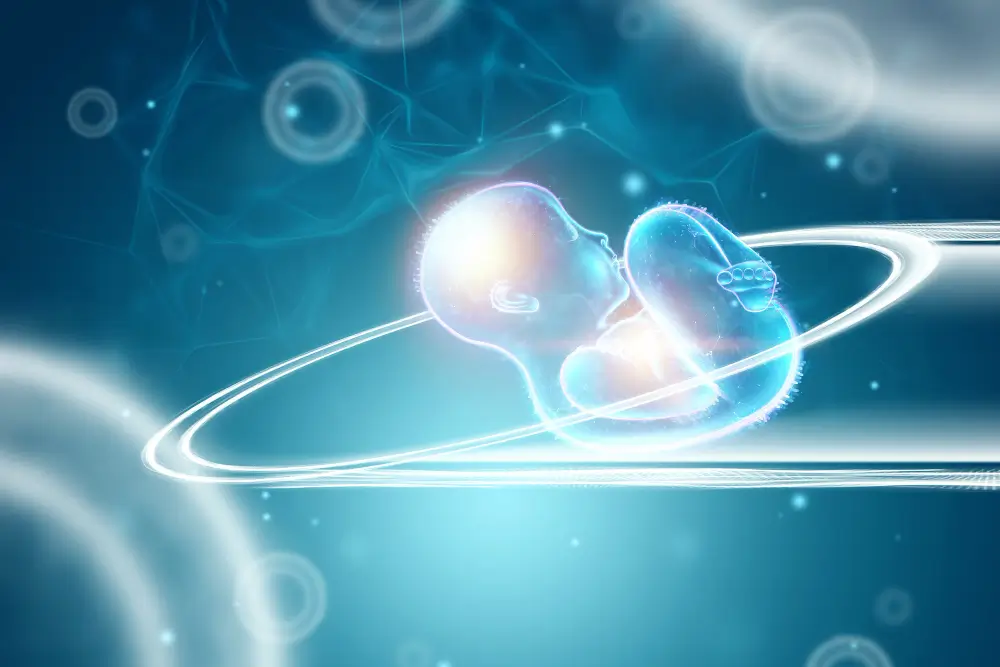The choice to be an egg donor or to receive one as part of the fertility treatment is quite personal and medically critical. Protecting the safety and well-being of the donor and the intended parents begins with a successful egg donation procedure. At Indian Egg Donors, there is a very strict egg donation process to identify healthy, responsible, and emotionally stable individuals to undergo egg donation cycles.
Whether you are an intended parent or a prospective donor seeking egg donor candidates, knowing the egg donation process step by step provides trust in the process and adds transparency to your reproductive experience.
Egg Donation Procedure
1. Initial Application and Background Evaluation
The egg donation process starts with an extensive application. Applicants fill in personal, medical, educational, and lifestyle details that decide whether they fit into the broad criteria or not. These generally comprise:
- 19 to 30 years old
- Good body mass index (BMI)
- No history of genetic or inherited disease
- No smoking and no drug abuse
This is the initial process and one that is essential to the people who wish to become an egg donor, in that it provides only the proper candidates with an opportunity to proceed. Fertility clinics and organizations such as Indian Egg Donors utilize this phase in order to exclude prospects with disqualifying characteristics. The application contains information regarding education, ethnicity, family history, and interests, giving intended parents looking for egg donor profiles that align with their beliefs.
2. Medical Screening and Genetic Evaluation
After the smooth passing of the initial application, the subsequent egg donation process, step by step, includes in-depth medical screening, which includes:
- Blood Tests: Determination of hormone levels and infection screening.
- Ultrasound Exam: Ovarian reserve check through antral follicle count (AFC).
- Genetic Testing: Screening for cystic fibrosis, Tay-Sachs disease, and other ailments.
Medical staff dealing with Indian Egg Donors affirm that every donor is healthy and fit for the egg donation cycle. In case an issue arises, the applicant is required to protect all parties involved.
3. Psychological Assessment
Egg donation is not just a physical investment but psychological as well. That is why potential donors undergo psychological examinations.
This consists of:
- Personal interviews
- Mental and emotional fitness test
- Screening for coercion, drug use, or underlying psychiatric disorders
At Indian Egg Donors, there are licensed personnel who ensure that every donor understands the implications of egg donation and does so voluntarily. Mental preparation is essential for anyone who wishes to be an egg donor.
4. Genetic and Family History Review
Genetic counselors examine a three-generation medical family history for the purpose of determining inherited risk. Early disease or mental illness may be the reason for further exclusion or testing.
This rigorous step comforts potential parents looking for egg donor applicants who demonstrate minimal medical risk and a normal family history.
5. Infectious Disease and Drug Screening
Donors are rigorously tested for STIs and other illnesses, such as:
- HIV, Hepatitis B & C
- Chlamydia, Gonorrhea, and Syphilis
- Cytomegalovirus (CMV)
Drug screening is also conducted in order to ensure embryo safety. These tests are key steps in all egg donation cycles and part of why Indian Egg Donors is the top egg donation agency selection for so many families.
6. Legal and Ethical Considerations
Legal documents are signed prior to any procedures, including:
- Anonymity and privacy agreements
- Compensation scheme
- Parental rights relinquishment
With the assistance of expert legal counselors, Indian Egg Donors ensures that all aspects of the egg donation process are ethical and fully elucidated. These measures benefit egg donors and intended parents alike and add to their reputation as the best egg donation agency.

7. Final Approval and Matching
After clearing, the donors can match. Parents are able to view comprehensive donor profiles, such as health and non-identifying personal details.
This step is the beginning of the actual process of egg donation, where the donor’s schedule is coordinated for egg pick-up. It is difficult to be certain how long egg donation is because it can be variable, but usually around 2–3 months from submission to pick-up.
It is important to understand how long the egg donation process takes among donors and intended parents so that they can prepare and have a realistic idea of going through the process.
Frequently Asked Questions:-
Q. What is the egg donor screening process?
Ans : Step-by-step medical checkup of a donor’s physical health, genetic make-up, and mental state to ensure the egg donation process is safe and effective for everyone.
Q. What medical tests are done for egg donors?
Ans : Donors are tested through blood work, hormone studies, ultrasound, and tests for genetic diseases and infections during the course of egg donation.
Q. Is there a psychological test for egg donors?
Ans : Yes, mental health experts go through the donor’s emotional suitability and reasons. This is an essential component of the egg donation process, step by step.
Q. Why is family health history important in screening?
Ans : Knowledge of the family health history is extremely crucial, particularly for prospective parents looking for egg donor applicants of low genetic risk.
Q. Do Indian Egg Donors offer legal support?
Ans : Yes, Indian Egg Donors, being the best egg donation agency, ensures that legal documents are written properly and are available to benefit the people who become egg donors or recipients.
Conclusion
Screening an egg donor is a critical part of making a safe, ethical, and successful journey to fertility. From initial tests to psychological screening and legal confirmation, each step safeguards all parties involved.
Indian Egg Donors pride themselves on placing this process in the limelight and with compassion, whether you’re prepared to be an egg donor or seeking egg donor possibilities. The optimum egg donation agency recruitment process is having faith in a well-structured, medically sound, and emotionally compassionate way ahead.

Dr. Pooja Patel
Dr. Pooja Patel is a Chief Surrogacy Coordinator at Surrogacy4all. She has 10 years of experience in Anesthesiology and critical care medicine.
She received her medical degree from Seth GS Medical College and K.E.M Hospital in India. She then completed an internship. She finished her Anesthesia residency at Grant Govt Medical College and JJ Group of Hospitals in India.










